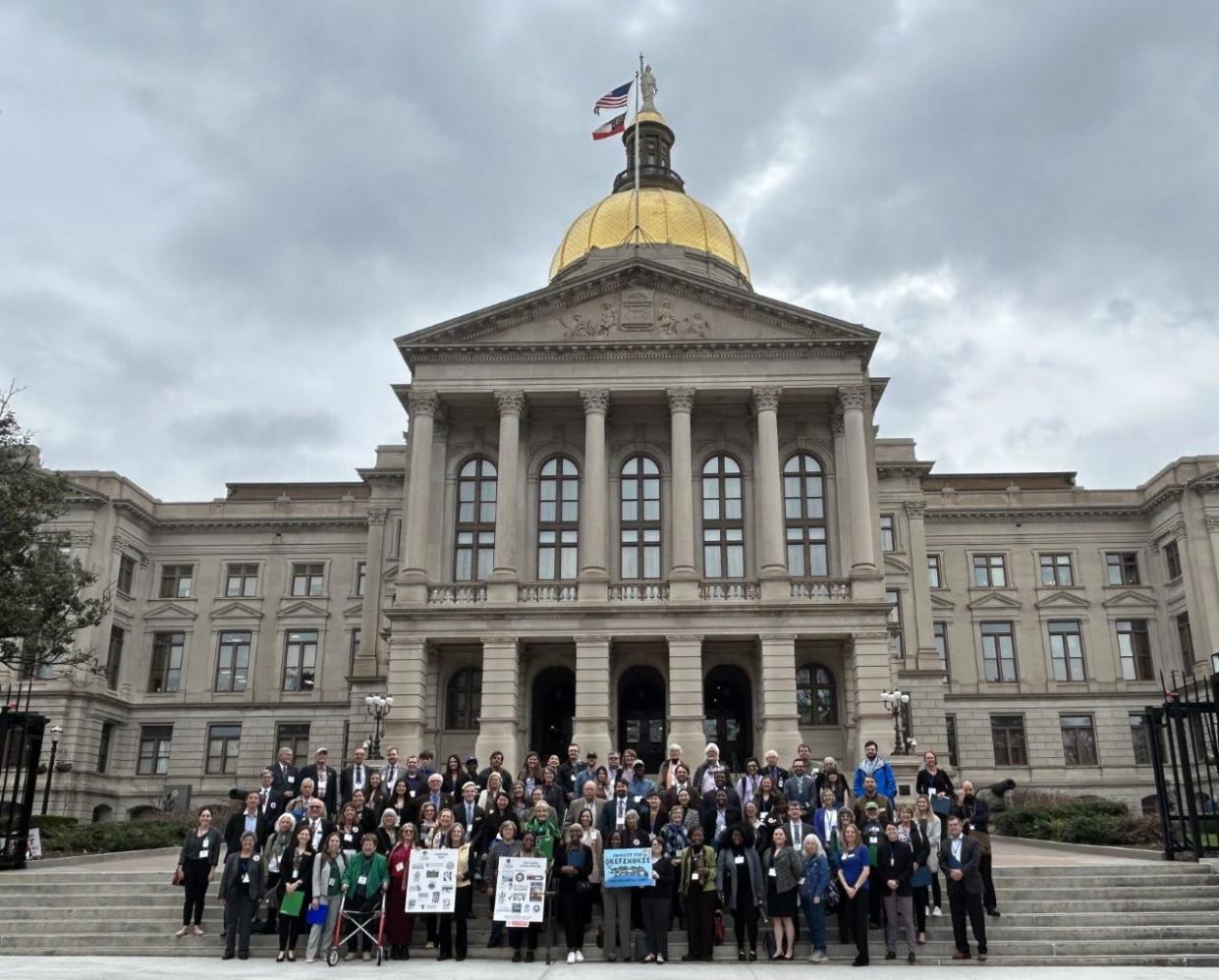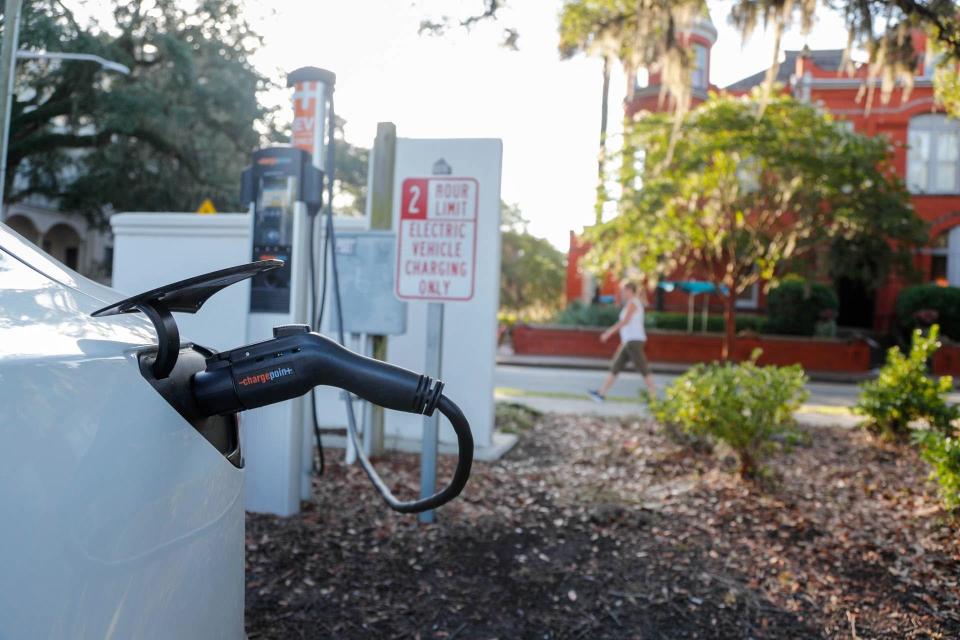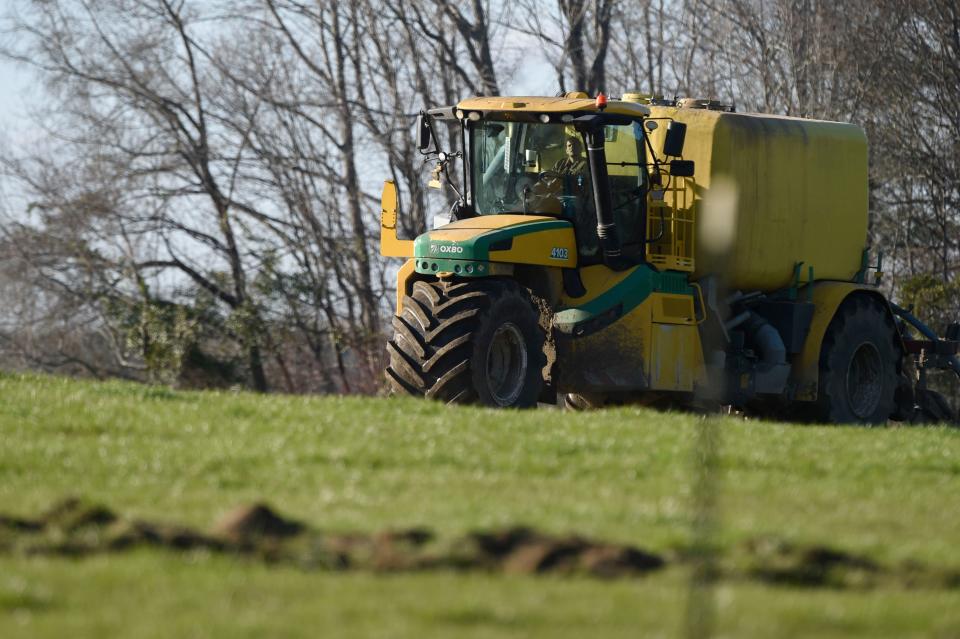Legislative roundup: Environmental bills under consideration by Georgia lawmakers

Solar panel production, Hyundai facilities and industrial developments last year boomed in Georgia. This year, as the halfway point nears for the 2023 Georgia legislative session, multiple environmental policies are up for debate.
Conservationists, advocates and environmental experts this week met at the state Capitol for Conservation Day, where the groups hoped to meet with legislators and promote bills they argue will protect and enhance Georgia’s natural resources. This year, advocates were most concerned about two policies sitting in the Natural Resources committee of the state House: the Okefenokee Protection Act, House Bill 71; and, House Bill 477, a law looking to increase regulation of a controversial soil additive.
Legislators and advocates are honing down on policies as they head toward Crossover Day, March 6, which is the day a bill needs to get from the House to the Senate, or vice-versa, to be considered by either chamber this year.
Here are a few of the notable bills lawmakers might consider:

Legislation shaping up for green technology
House Bill 307: Looking to clarify how the future EV charging network will shape up, this bill bars Georgia Power from charging ratepayers to pay for expanding that infrastructure. This legislation is in part the result of the legislature's Electrification of Transportation Study Committee as well as the 2022 Georgia Power Rate Case. Ultimately, the bill is looking to incentivize private sector investment in the deployment of electric vehicle charging equipment.
House Bill 406: This bill is the result of a joint legislative study committee last year looking into how the state should accommodate electric vehicles in the future, particularly in light of millions of dollars of federal funding the state has to build a network of EV charging stations. It proposes some standardization for EV charging to make it more in line with how gas stations are regulated, allowing retailers to charge EV drivers for electricity by the kilowatt hour rather than based on the length of time the vehicle is connected to the charging station.
The House Technology & Infrastructure Committee has already unanimously passed the bill and sent it to the House Rules Committee for a vote with the full House. This bill is similar to SB 146 proposed by Sen. Steve Gooch (R-Dahlonega).
EVs and the environment:How electric cars are impacting emissions and climate change
More on EVs: 2022's hottest topics: Hyundai coming to Savannah
Senate Bill 72: Sen. Emanuel Jones (D- Decatur) and eight other senators sponsored SB 72, the “Baranco Act," a policy that would bar anyone from stopping, standing, parking or otherwise blocking an electric vehicle charging space. The bill proposes a fine of $100 or more.
House Bill 73: This consumer protection-related bill would regulate solar panel installers by ensuring those companies are certified by the Georgia Public Service Commission. Aimed at reducing poor quality or scam-like solar installers, the bill requires solar installers to pass a background check, turn over financials to the PSC showing they have adequate capital, disclose to customers payment terms and calculations used to determine potential energy savings, and would give the PSC space to set other requirements. This bill has cleared the House Energy, Telecommunications and Utilities Committee and will go to the full House for a vote.

Natural resources, outdoors and more
House Bill 71: The Okefenokee Protection Act is one of the hottest topics in environmental policies this year. The bill has already accrued more than 50 bipartisan cosigners, a much higher number than the average bill usually receives. The bill proposes limiting surface mining on the remaining area of the Trail Ridge area at the edge of the Okefenokee National Wildlife Refuge. It would not do anything to halt the current mining permit that the Georgia Environmental Protection Division is considering. Right now, the bill is in the House Natural Resources Committee and would need to make it out of committee and to the full House for a vote in order to have a shot at becoming law. The committee’s chair, Lynn Smith, didn’t bring a similar protection bill to a vote last year, leaving it to die in committee.
Ongoing: Public comments for Okefenokee Swamp mining plans are open
Latest on the swamp: Georgia representatives push to make Okefenokee Swamp a UNESCO World Heritage Site
House Bill 477: This bill, proposed by Rep. Rob Leverett (R-Elberton), looks to crack down on the regulation of soil amendment, a soil additive that has become controversial in east Georgia over the last year due to smell, nuisance, vermin and concerns about pollution. The bill would allow counties some additional ability to monitor the spread of soil amendments and to prevent illegal application.
What is in the bill: Soil amendments could get some local monitoring under new bill in the Georgia House
House Bill 370: This coastal bill proposed by Jesse Petrea (R-Savannah) would flip the burden of proof for property owners to prove they own salt marshes instead of the state government. In Georgia, salt marshes are owned by the state unless a property owner can prove a private title traced back to the British Crown or a state land grant. This bill gives the state 180 days to make a decision as to who owns the property and makes it so that if the state fails to respond within that time period the property owner automatically wins legal ownership of the salt marsh.
Marisa Mecke is an environmental journalist. She can be reached at 912-328-4411 or mmecke@gannett.com.
This article originally appeared on Savannah Morning News: Legislative update: Environmental bills in Georgia this year

